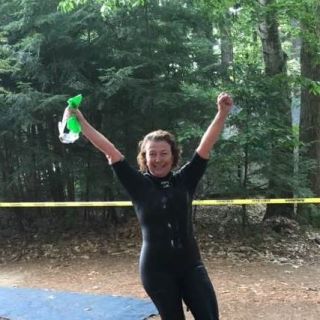Burnout
Diversify, Set Your Own Goals, and Listen to Your Heart
What the new guideline for burnout prevention in youth athletes can teach us.
Posted February 28, 2024 Reviewed by Lybi Ma
Key points
- By setting our own intrinsic goals, not trying to meet someone else's benchmarks, we find meaning in our work.
- Maintaining diverse interests and extracurricular activities keeps us well-rounded and prevents burnout.
- Remembering the basics of good nutrition and adequate sleep also girds against exhaustion and relieves stress.
This month, the American Academy of Pediatrics issued new clinical guidelines for pediatricians to help youth athletes guard against burnout. As a pediatrician, I read with interest the advice for preventing injuries through over-training. As a narrative medicine facilitator, writer-in-residence at a family medicine residency program, and someone vitally interested in physician well-being, it struck me that many of the AAP’s recommendations and guidelines could be applied to all adults.
We know that excessive training in athletes can impair well-being and diminish enjoyment of the sport and quality of life, too. This is true in our everyday work. Working long hours and multiple days in a row can deplete our inner resources and contribute to exhaustion. In a recent article in the Journal of the American Medical Association, 60 percent of physicians took less than three weeks of vacation per year; and over 70 percent worked over their vacation. Not surprisingly, these physicians who worked on vacation suffered higher rates of burnout. All work and no play doesn’t just make Jack a dull boy, it's making Jack sick.

Another potential cause of burnout in student-athletes is perceived pressure from others. When playing on a team is more important to the parents than the kid, that is a problem. When coaches over-emphasize winning or making it to the finals over participation, teamwork, and just having fun, that is also a set-up for burnout. We need to find internal motivation to discover our true north. What is it about our jobs that is meaningful and worthwhile? Is it our relationships with our patients or clients? Is it the gratitude of that one patient we took the time to listen to? Or the simple satisfaction of a job well done? At the end of the day, it is that ability to attain intrinsic goals that we set for ourselves, not benchmarks someone else sets for us, that will sustain us and add meaning to our work life.
Pressure to specialize too early can increase pressure on young athletes, increasing the risk of burnout. Likewise, if adults only focus on the role of being a professional, we are adding burdens and not allowing time to explore other aspects of ourselves. Taking pride in our work is great, but being well-rounded, and nurturing outside interests, be they cooking, dancing, writing, or making pottery, can add to our sense of purpose and well-being.
Of course, self-care—getting enough sleep, paying attention to nutrition, and staying adequately hydrated—is also important for all of us, student-athletes and adults.
Taking all of the common sense recommendations for preventing burnout in youth athletes and applying them to ourselves can lower our own risk of burnout, and lead to greater enjoyment of our work and fulfillment in life.
References
1. Joel S. Brenner, Andrew Watson, COUNCIL ON SPORTS MEDICINE AND FITNESS; Overuse Injuries, Overtraining, and Burnout in Young Athletes. Pediatrics February 2024; 153 (2): e2023065129. 10.1542/peds.2023-065129
2. Sinsky CA, Trockel MT, Dyrbye LN, et al. Vacation Days Taken, Work During Vacation, and Burnout Among US Physicians. JAMA Netw Open. 2024;7(1):e2351635. doi:10.1001/jamanetworkopen.2023.51635


